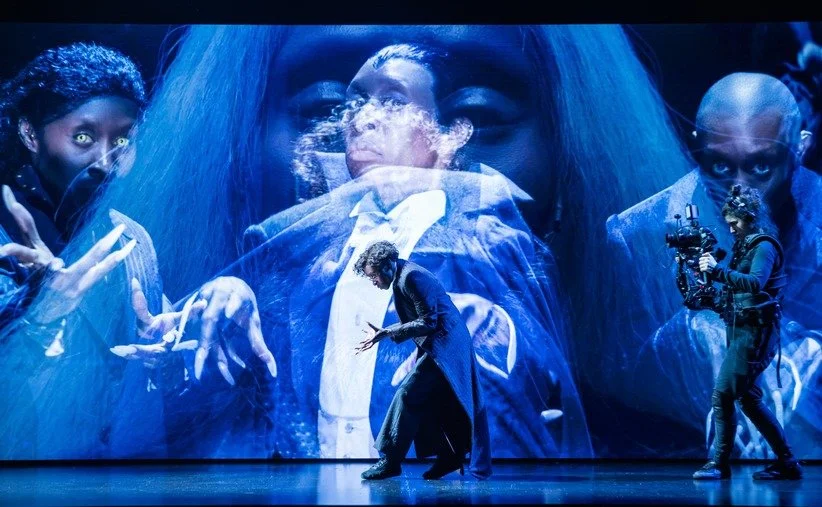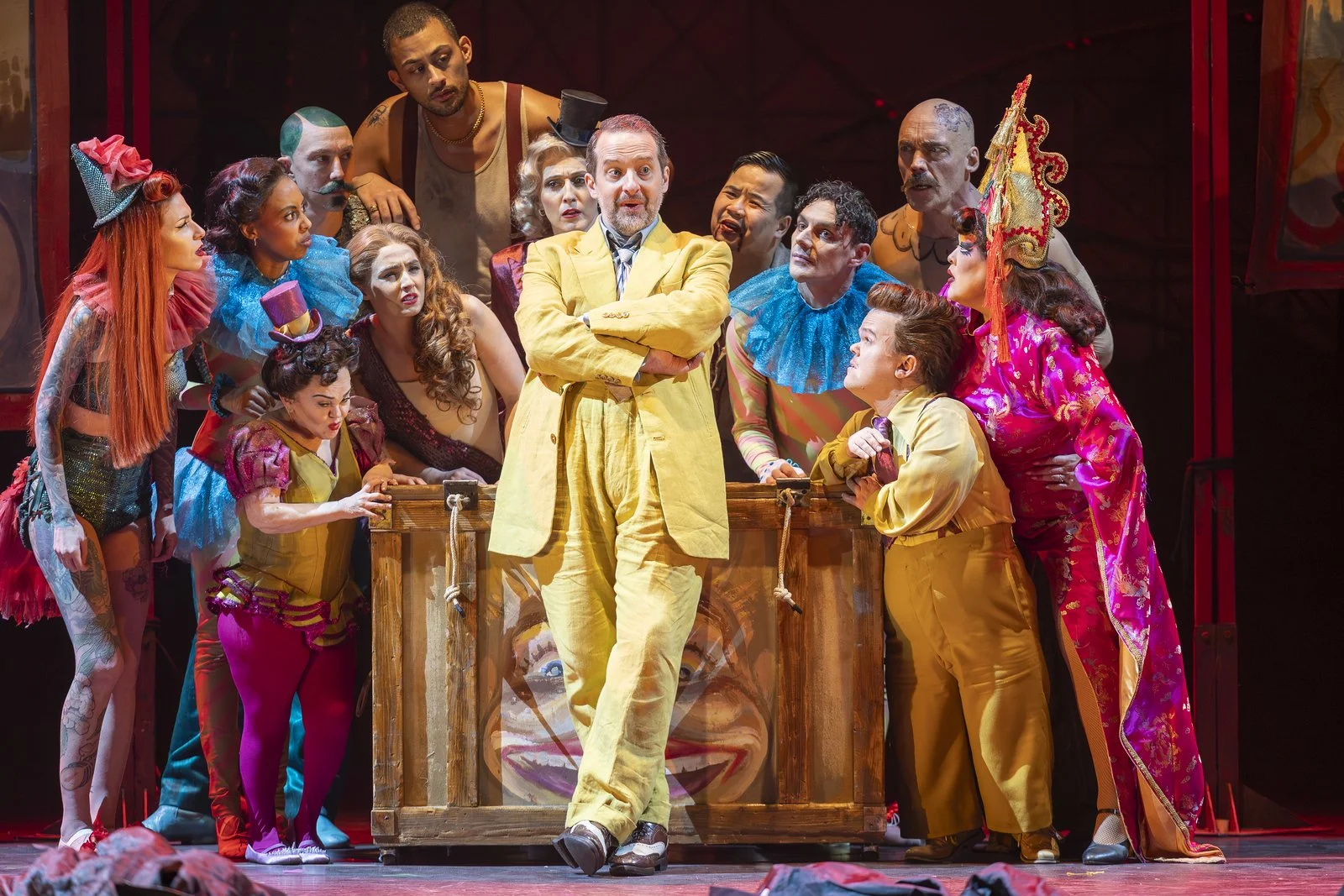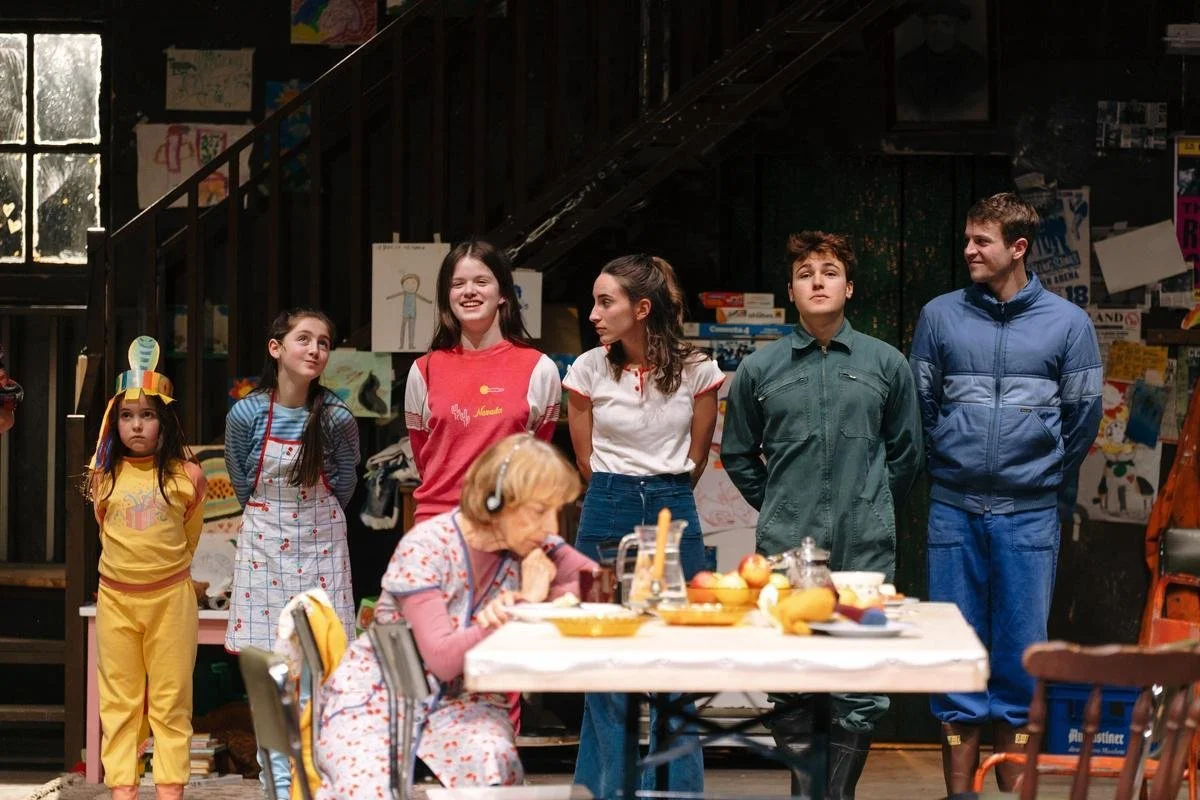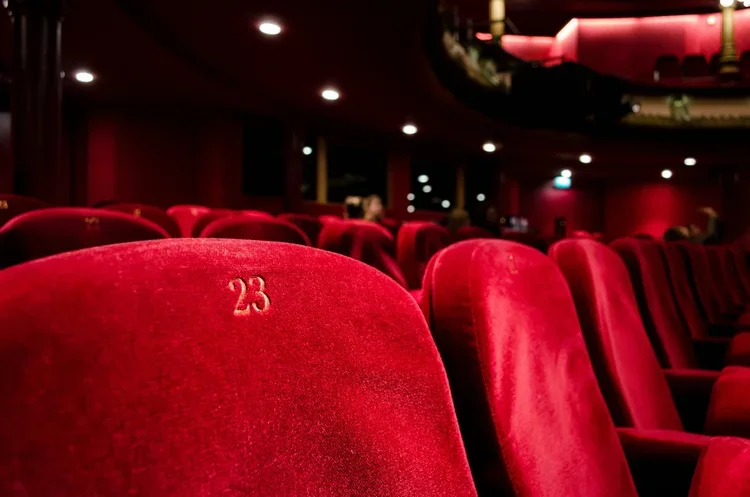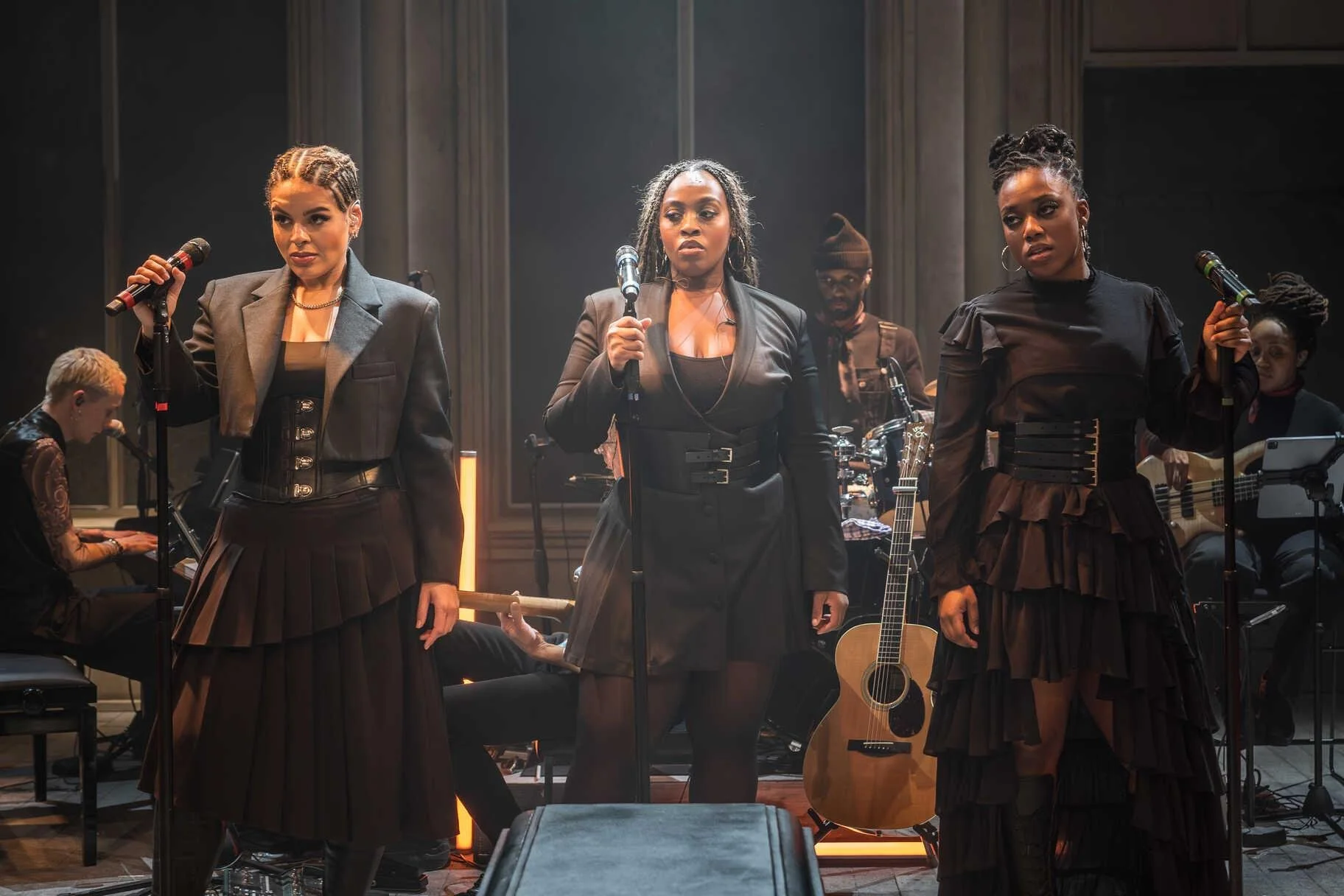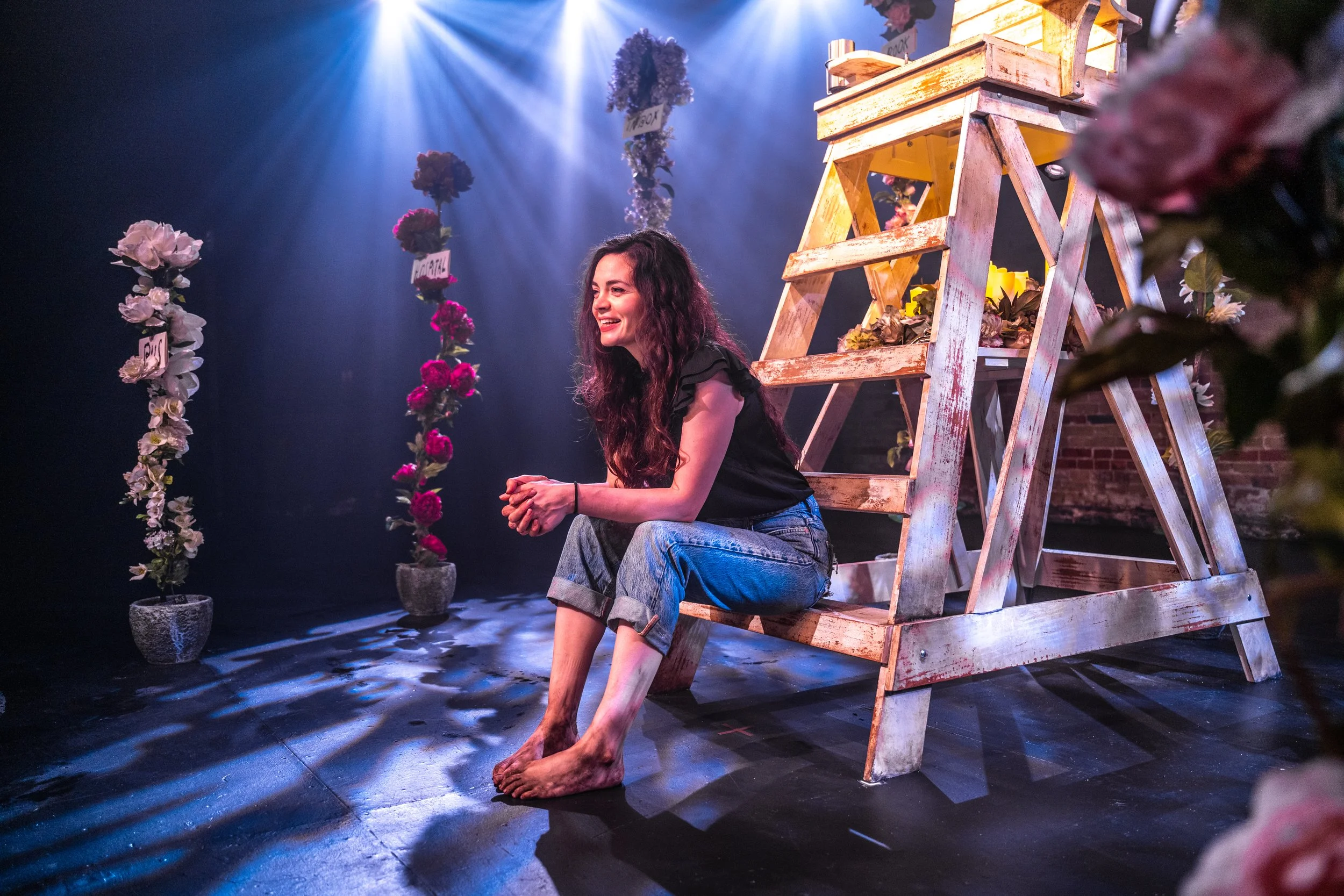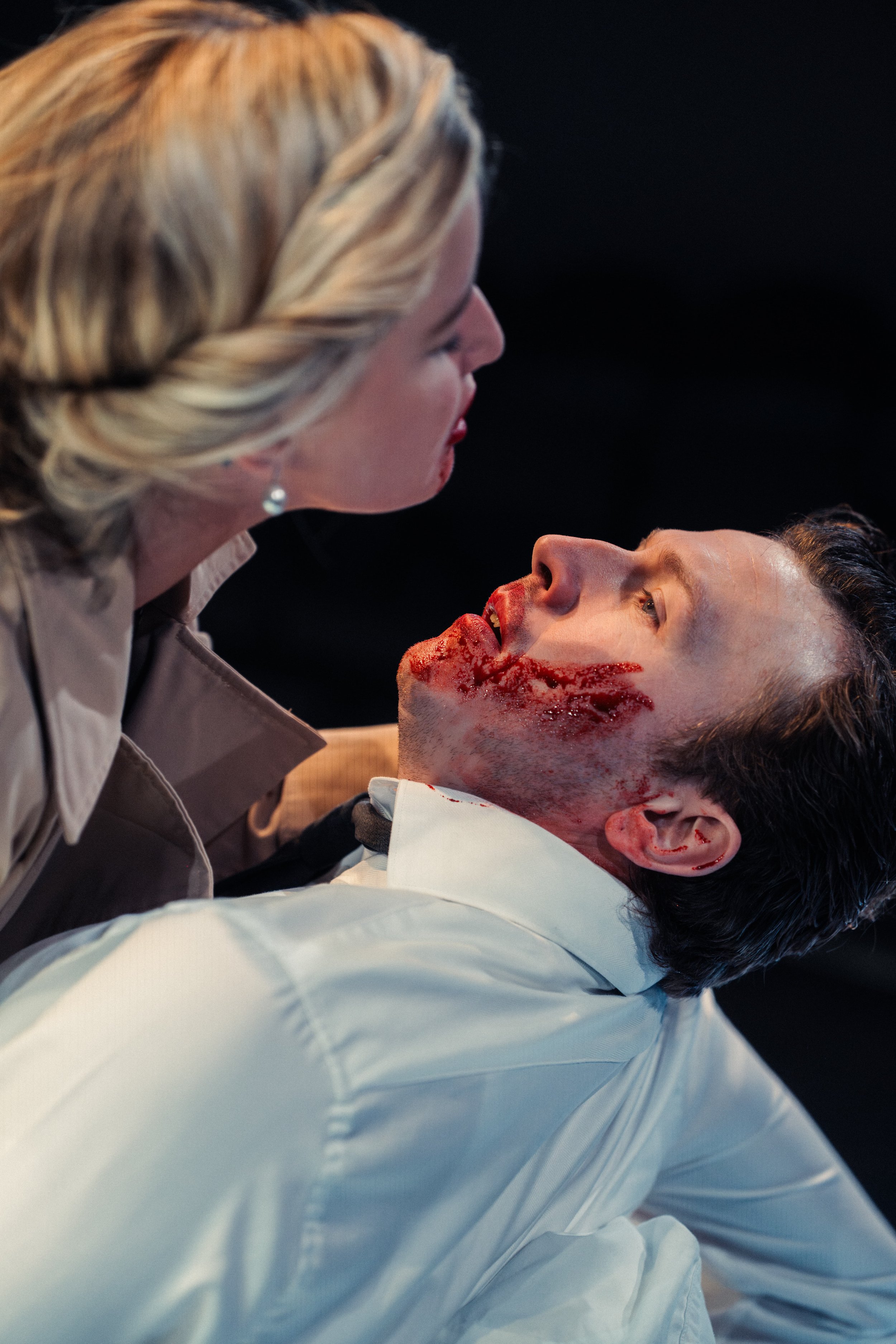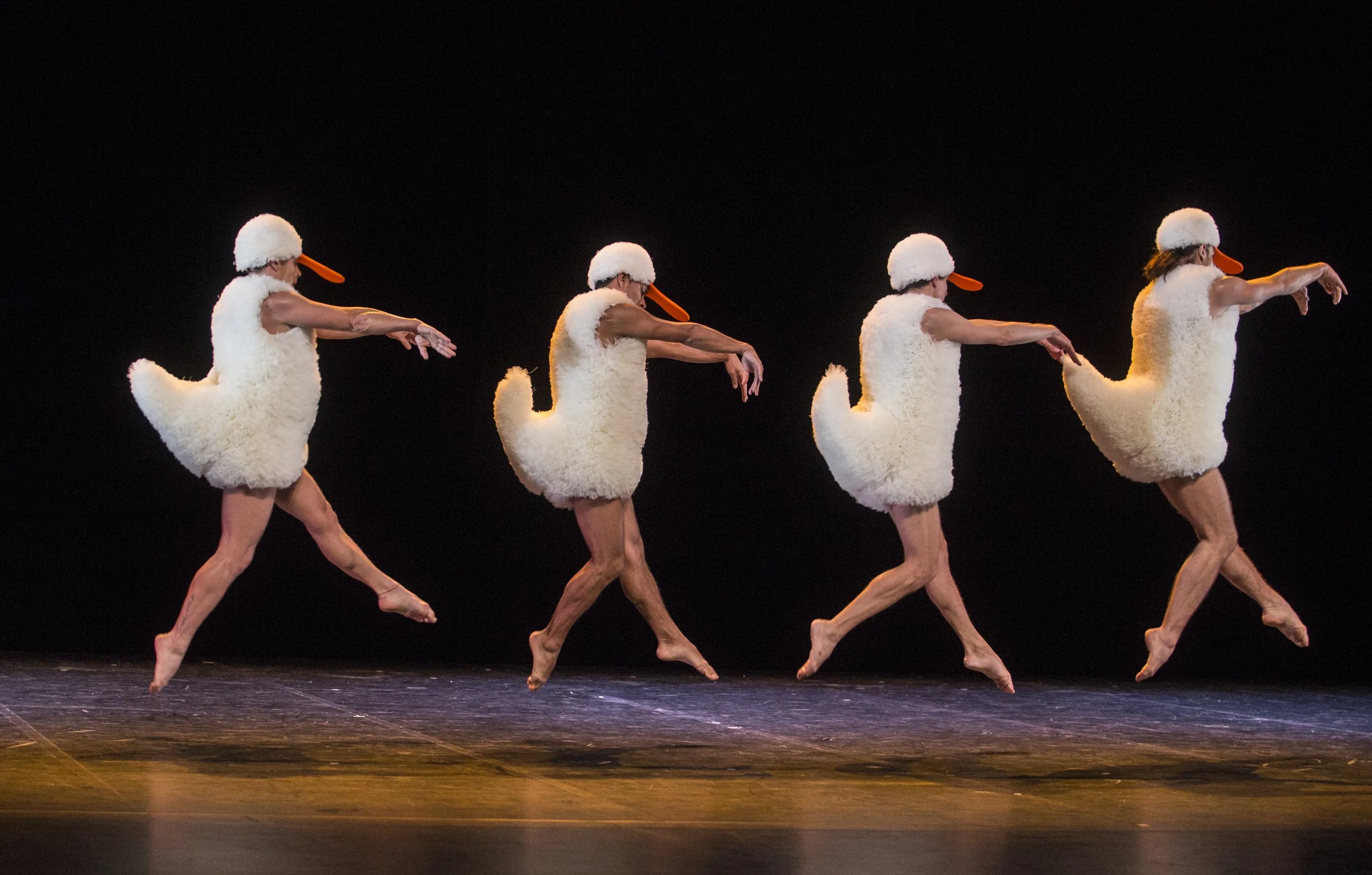A Doll’s House, Sheffield Crucible Review
Written by Kirsty for Theatre and Tonic
Disclaimer: Gifted tickets in return for an honest review. All opinions are our own
Henrik Ibsen plays have undoubtedly had a resurgence recently with a number of adaptations of his work being produced in both London and New York. Now, Chris Bush has made a triumphant return to Sheffield’s Crucible Theatre with a new adaptation of A Doll’s House.
The play tells the story of Nora played by Siena Kelly, who is playing the role of the dutiful wife of Torvald played by Tom Glenister. We meet the couple on Christmas Eve and we discover that this is the first Christmas where they are a couple of standing in the community with Torvald becoming the local Bank Manager at the beginning of the next year. It is immediately clear that Torvald is a man obsessed with reputation, and that his marriage to Nora is simply another part in that puzzle.
To the outside world, Nora has the perfect life, a respectable husband, a beautiful home and family, and enough pin money for whatever her heart desires. However, it is clear that Nora is harbouring dark secrets and that this little bird may be caged against her will without a means of escape.
Glenister plays Torvald as a man who will do anything to remain respectable, and that anyone who may destroy his chance of being a man of standing will be cast aside without a second thought. The final scenes between Nora and Torvald demonstrate this perfectly and both actors were truly amazing throughout. Kelly plays Nora as a truly multi-dimensional character and we see her journey from caged songbird to free woman and you can’t help but cheer for her when she stands up for herself, probably for the first time ever. Glenister embodies Torvald as a man who just wants the trinkets of a good life, and that to him Nora is just another trinket to be discarded whenever he feels he has had enough of her. Kelly was mesmerising to watch and is truly the heart of the show.
Krogstad played by Eben Figueiredo, and Christina played by Eleanor Sutton at first meeting seem like another pair of pawns in Torvald’s game, however, their relationship provides the perfect juxtaposition to Torvald and Nora. Figueiredo plays Krogstad as a man who will do anything to regain his position in society but is ultimately shown to be a good man by the end. It is unclear as to whether the same could be said of Torvald. Nora and Torvald’s main, Anna played by Mel Lowe, was another character who served to show how far Nora had been brought in life by her adoptive father and now her husband, and at times it felt like she was Nora’s only true friend, however, the power imbalance was also still evident.
Aaron Anthony’s Dr Rank, who is a friend of Torvald and obviously in love with Nora, is an interesting character again with a dark story. Whilst Anthony’s performance was also engaging and multi-faceted I was left wondering what the point of that character was other than a pawn that Nora could manipulate as she knows of Rank’s love for her. It felt like Nora could see in the tragic Dr Rank, what love should be, but this was something that was never for the likes of her.
Elin Schofield’s direction of the piece, in conjunction with Bush’s exceptional adaptation of the play made the piece feel timeless despite it being clearly set in the late 19th Century. Chiara Stephenson’s beautiful and effective set design acted as an extra character on stage, and with Richard Howell’s lighting there were times where the audience truly felt they were looking through the window of a Doll’s House waiting for the toys to come to life.
The piece felt relevant and empowering, with the ideas of women wanting more from life than being controlled by a man, be that father or husband, were handled superbly. In a world where the rights of women are constantly being discussed by men in power, it feels like the perfect time for this story to be told.
At Sheffield Crucible until 12 October 2024.
★ ★ ★ ★ ★



